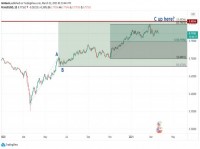|
Opalesque Industry Updates - In the midst of the global financial crisis, Canada’s largest and most active institutional fixed-income traders led a long-awaited move into electronic trading, according to new research from Greenwich Associates. Thanks to the relatively prudent and conservative strategies pursued by Canada’s banks during the boom years, the nation’s fixed-income markets escaped the worst consequences of the global credit crunch. Nevertheless, the crisis has had a lasting effect on both institutional fixed-income investors and the dealers that serve them. In particular, some of Canada’s leading fixed-income dealers have responded to the tumultuous market conditions by narrowing their strategies and focusing their efforts and resources on a smaller group of select clients. At the same time, many of the large foreign dealers that had built a significant presence in the market scaled back their Canadian operations rapidly and dramatically as a result of their own serious balance sheet issues. The end result: Many Canadian institutions experienced disruptions in relationships with one or more of the dealers they relied on for coverage in specific domestic and international fixed-income products. Faced with gaps in sell-side coverage and a sudden and dramatic widening of spreads, Canada’s institutions turned to electronic trading platforms as a new and alternative source of liquidity. In 2008, only 36% of institutions generating more than $10 billion in annual fixed-income trading volume used electronic trading platforms for this business. In 2009 that proportion surged to 61%, driving the overall share of Canadian institutions trading electronically to 43% from 40%. Greenwich Leaders: Canadian Fixed Income Three firms dominate the Canadian fixed-income market: BMO Capital Markets, TD Securities and RBC Capital Markets. Each of these dealers has captured a market share of 16-17%, and in aggregate, these firms account for half of all fixed-income trading volume in Canada. Institutions rate RBC Capital Markets as the market’s highest quality provider, and the firm ranks as the Greenwich Quality Leader in Overall Franchise Strength, Sales and Trading. BMO takes top honors in quality of fixed-income research. TD Securities ranks second in quality ratings in sales, trading and overall franchise strength. “The strong gains made by TD Securities in terms of the quality of their fixed-income platform are worthy of special note, and they place the firm in a strong position in the fight for institutional trading relationships,” says Peter Kane. TD Securities was also one of the main beneficiaries of the significant increase in electronic trading volume last year, along with RBC Capital Markets. As Woody Canaday concludes, “Both firms saw strong increases in the number of investors trading with them through the CanDeal electronic platform.” Specialist Firms Capitalize on Market Turmoil Disruptions in relationships between Canadian institutions and their fixed-income dealers created an obvious opportunity for other dealers to expand their franchises by adding new institutional trading relationships. Certain firms have proved more adept than others at exploiting these opportunities. In particular, a group of specialist firms including Desjardins Securities, Casgrain and Laurentian Bank Securities have taken advantage of the change in market environment by upgrading their capabilities and the quality of service they deliver to institutional clients. For example, 42% of Desjardins Securities clients say their relationship with the firm has improved over the past 12 months. “Even if these shifts have not yet amounted to actual increases in market share, these specialist firms are building new relationships and cementing existing ties to institutions,” says Greenwich Associates consultant Woody Canaday. “The situation parallels that seen in the United States, where regional dealers have hired talent away from the contracting bulge bracket and upgraded their capabilities. They are positioning themselves for expansion in the very near term.” Another group of dealers has had less success in capitalizing on the disruptions in institutional dealer relationships. “There are a few major Canadian banks that actually lost market share from 2008 to 2009, even as some very credible competition receded,” says Peter Kane. “Although it is difficult to generalize about the performance of these banks due to differences in their strategies, it is likely that some of them will look back on the past 12 months as a missed opportunity.” Corporate website: Source - FG |
Industry Updates
Canadian Fixed Income: In Crisis, An E-Trading Surge - Greenwich Associates
Wednesday, October 28, 2009
|
|





 RSS
RSS







